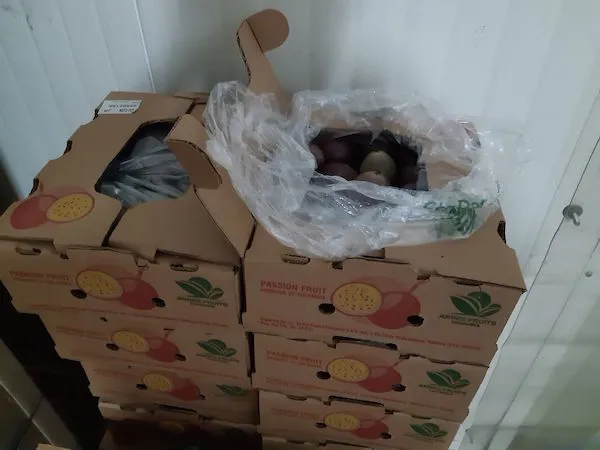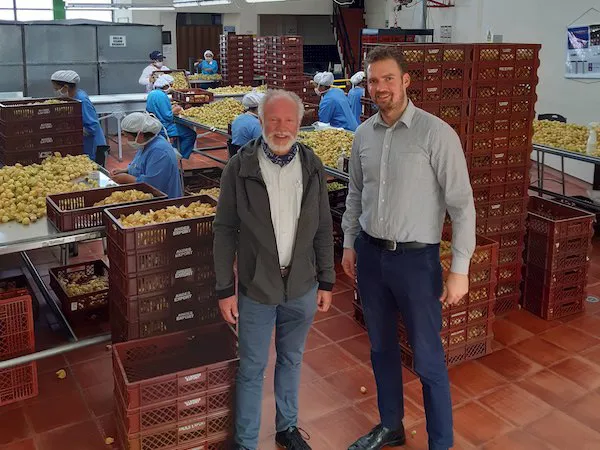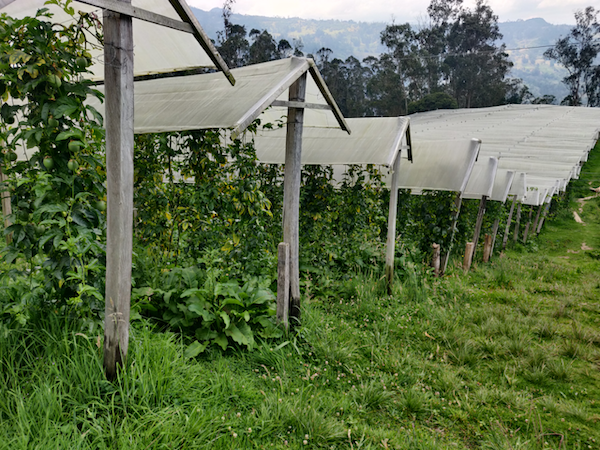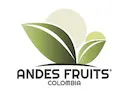Purple passion fruit is grown and exported by Colombia year-round and the product is growing in volumes and in popularity, mainly in Europe. Johan Beckers has been growing and exporting exotics for the past 20 years, after he left his native Belgium and settled in Colombia. Physalis is the main product for his company, Andes Fruits, but purple passion fruit has become an increasingly important product for him as well.

Grown at an elevation
Colombia’s climate is very steady throughout the year, though there are many different elevation levels throughout the country that each come with unique growing conditions. Beckers explains: “Traditionally, the purple passion fruit is grown around 1800 – 2000 meters above sea level, and that is still where you see the bulk of the cultivation happening today. Recently, though, there has been a tendency to grow the purple passion fruit at a higher elevation, anywhere between 2500 – 2800 meters. This helps to decrease the risk of pests and disease on the plants and we’ve found that it has been working very well.”
Reaching niche markets with organic production
Andes Fruits works with both organic and conventional production. In Colombia, organic production isn’t very common yet, and so setting up farms to be organic requires a lot of extra work. “Finding people who have experience with organic cultivation here has been very difficult,” says Rick Dellemann, who joined Andes Fruits at the beginning of June. “It takes a lot of investment to produce these products organically, both time-wise and financially. The certifying bodies from Europe have also become increasingly strict for the organic certifications.”
Despite the challenges of organic production, for Andes Fruits it has been worth it. “One of the reasons we do it is because we believe in the importance of organic production: the land needs this sustainable way of farming.”

Johan Beckers and Rick Dellemann.
Working on establishing minimum guaranteed pricing
Andres Fruits’ purple passion fruit is mainly sent to Europe, as the United States doesn’t yet allow the importation of Colombia’s passion fruit. “The fruit mainly enters Europe through the Port of Rotterdam, but only a small share of the volume is consumed in the Netherlands, as most of the fruit is re-exported. Germany is the biggest market for purple passion fruit, and we send our fruits to France, Scandinavia and the UK as well. We are also seeing potential in Poland and Belarus,” says Beckers.
Colombia is currently the largest purple passion fruit supplier. Beckers explains: “Kenya and South Africa also grow the product, but they only export it through airfreight. This makes their product more expensive, so Colombia does have a market advantage. When all three origins are supplying, the fruit´s price gets affected negatively, because there’s too much volume on the market.”
Mapping out the demand
Exotic fruits and vegetables have been becoming increasingly popular in the markets. Despite this, there isn’t much information available on the consumption patterns of purple passion fruit. “We are currently working on tracking the exports, to get a better idea of what the volumes and demand are like throughout the year,” Beckers shares. “It'll help to see which times of year the demand spikes. For physalis, for example, the months towards Christmas are key. When we know which periods of the year are important for passion fruit consumption, we can prepare our production for it.”

Pandemic challenges
In March, Andes Fruits hit some challenges when the pandemic broke out. Beckers explains: “The main issue was that the transit time from door-to-door, from Colombia to Europe, is about 30 days. So, there were shipments that were already on their way when the pandemic broke out, and when it arrived in Europe there was almost no demand anymore. The importers, however, became very creative with finding new and different outlets for the product, and made sure to distribute it, even at a loss, so that it wouldn’t have to be dumped.”
In April, the company started to return to nearly normal operations. “We took precautions right away, to streamline our production and become more efficient in our processes. The product that was on the water when the pandemic hit experienced issues, but after that it’s been alright,” according to Beckers.
Philosophy of sustainability and fair trade
Andes Fruits works with many small growers to build their product supplies. “Here, a one-hectare farm is considered big,” says Dellemann. “That means that you work with a lot of different growers to get the volumes you need. That is why our philosophy is to be as efficient as possible in our packhouses and processes, so we are able to give back a better price to the growers. Our focus is on being sustainable and following fair trade guidelines, not only for our FairTrade fruit. The human factor of the business is very important to us, that´s why about 90% of our workers are female, for whom it can be very difficult to find employment here.”
In this light, the company has also been working on getting better market standards for passion fruit. “We have been working on setting a minimum guaranteed price, not just with our customers but also throughout the industry. There are months when the pricing is high, but there are also periods during which prices drop so significantly that both our company and growers are operating on a loss. That is something that can and should be avoided, considering importers and wholesalers could agree upon minimum guaranteed prices with their retail customers as well. It’s very important to us that we can make the markets and the industry fair and viable for all,” Dellemann concludes.
 For more information:
For more information:
Johan Beckers
Andes Export
Tel: +57 300 2661 576
Email: jbeckers@andesexport.com
www.andesexport.com
 Rick Dellemann
Rick Dellemann
Andes Export
Tel: +57 300 7818 295
Email: rick@andesexport.com
www.andesexport.com
